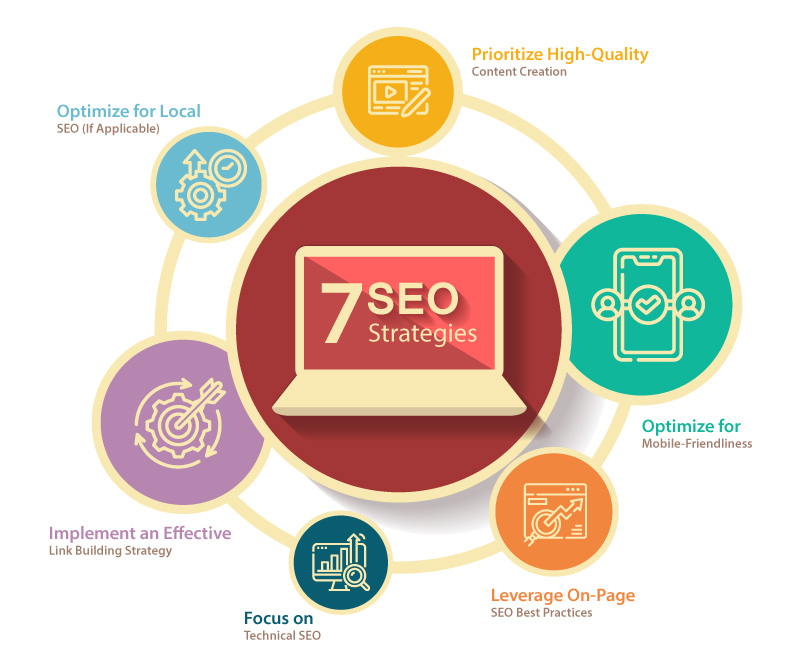Share Article :
Introduction
Search engine optimization (SEO) is a crucial component of digital marketing that ensures your website ranks higher on search engines, attracting more organic traffic and potential customers. As a marketing manager, staying ahead in SEO is essential to drive business growth. Here are the top 7 SEO strategies every marketing manager should know.

Prioritize High-Quality Content Creation

Content is the backbone of SEO. Search engines prioritize valuable, well-structured, and engaging content. To optimize your content:
- Conduct keyword research to identify topics your audience is searching for.
- Use a mix of informative blog posts, case studies, and long-form content.
- Ensure readability with short paragraphs, bullet points, and subheadings.
Optimize for Mobile-Friendliness

With mobile searches surpassing desktop, Google prioritizes mobile-friendly websites. Ensure:
- Your website has a responsive design that adapts to different screen sizes.
- Page speed is optimized for fast loading times.
- Images and videos are compressed for mobile efficiency.
Leverage On-Page SEO Best Practices

Enhance your website’s visibility by optimizing key on-page elements:
- Title Tags & Meta Descriptions: Ensure each page has a unique, keyword-optimized title and compelling meta description.
- Header Tags (H1, H2, H3): Organize content for easy readability.
- Internal Linking: Link to other relevant pages on your site to improve navigation and indexing.
Focus on Technical SEO

Technical SEO ensures search engines can crawl and index your site efficiently. Implement:
- SSL Security: Secure your website with HTTPS.
- XML Sitemaps: Submit a sitemap to Google Search Console for better indexing.
- Structured Data Markup: Use schema markup to enhance search visibility with rich snippets.
Implement an Effective Link Building Strategy

Backlinks from authoritative websites improve domain authority and search rankings. Strategies include:
- Guest posting on reputable industry blogs.
- Building relationships with influencers for organic mentions.
- Creating high-value content that naturally earns backlinks.
Optimize for Local SEO (If Applicable)

For businesses with a local presence, optimizing for local SEO is essential:
- Claim and optimize your Google My Business listing.
- Encourage customer reviews and respond to them actively.
- Use location-specific keywords in content and meta tags.
Monitor Performance and Adjust Strategies

SEO is an ongoing process that requires regular monitoring and adjustments. Utilize:
- Google Analytics & Search Console: Track traffic, keyword rankings, and user behavior.
- SEO Audit Tools: Identify areas for improvement using tools like SEMrush, Ahrefs, or Moz.
- Competitor Analysis: Keep an eye on competitors’ strategies and adjust accordingly.
Conclusions
Mastering these 7 SEO strategies will help marketing managers enhance their brand’s online presence, attract high-quality traffic, and drive conversions. SEO is an evolving landscape, so staying updated with trends and continuously optimizing your approach will ensure long-term success.
Need expert SEO guidance? Implement these strategies today and watch your rankings soar!
Share Article :
